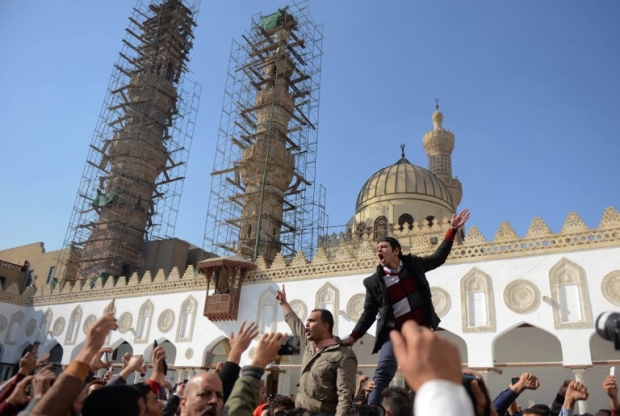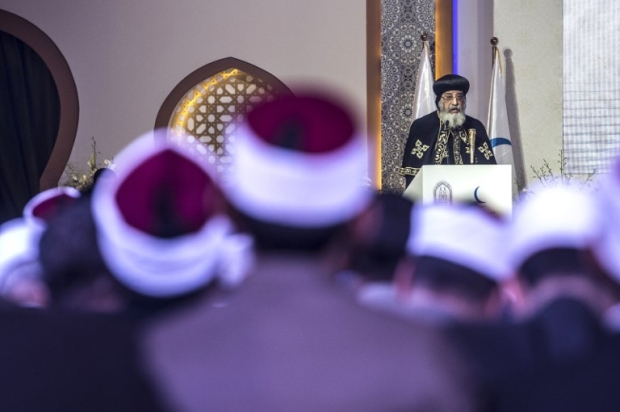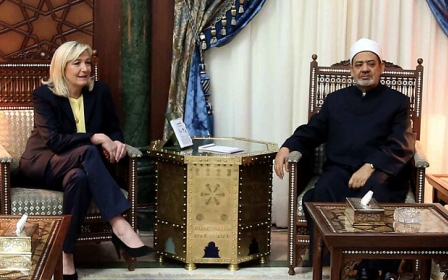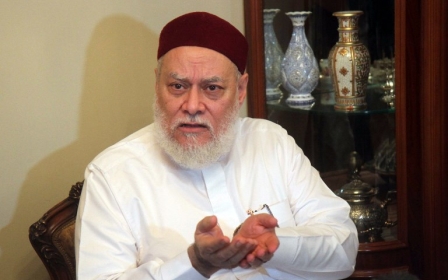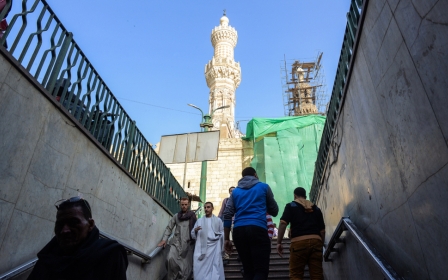UK imams back leading Egyptian cleric amid rift with Sisi
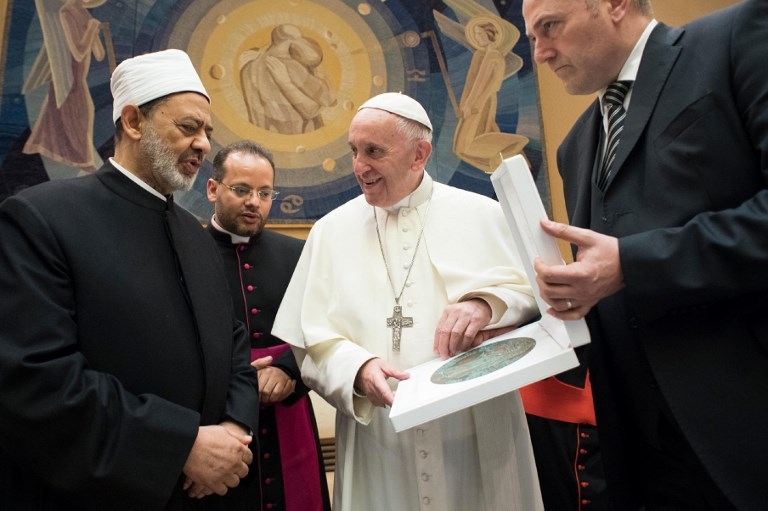
British scholars and imams have written a letter in support of the grand imam of the al-Azhar university in Cairo, amid a growing rift between the revered religious institution and Egypt's president, Abdel Fattah al-Sisi.
The letter, signed by 100 religious leaders, comes days before a landmark conference on Jerusalem where the Palestinian president, Mahmoud Abbas, is expected to speak.
Signatories include alumni of the thousand-year-old al-Azhar, one of the world’s first universities, and widely seen as the most authoritative religious institution in Egypt and within Sunni Islam, teaching new generations of clerics and producing research that for many spells out what being a Muslim entails.
The letter acknowledges the leadership and role played by Ahmed al-Tayyeb in "promoting the moderation of Islam" and "building bridges with other faith communities".
"In recent times, the world has appeared at a crossroad, facing challenges in many ways, from extremist narratives plaguing the religion to bloodshed and violence perpetrated in the name of religion; from demands of globalisation to humanitarian crises in many lands; from economic expediency of the powerful to political chaos of the less powerful."
"In this regard, we commend and applaud the wise and scholarly leadership provided by the Grand Imam, Dr Ahmad al-Tayyeb Shaykh al-Azhar, at an institutional level inside al-Azhar al-Sharif, as well as for the wider world, including the Arabs and Muslims."
The letter comes amid increasing acrimony between al-Azhar and Sisi, with the issue of Jerusalem the most recent point of contention in a long series of disagreements stretching back years.
A source close to Sisi claimed in December that Tayyeb had "embarrassed" the president after strongly condemning Donald Trump’s move to relocate the US embassy in Israel to Jerusalem and cancelling a meeting with US Vice President Mike Pence.
While the letter praises Tayyeb for "standing up for the right of Palestinians", Bakhtyar Pirzada al-Azhari, an alumnus of al-Azhar and signatory denied that the letter was designed to back Tayyeb in his running battle with Egypt’s authorities.
"Our letter from here is not to do with any internal politics. Our letter is to do with much more than just Jerusalem. It’s also for building bridges with the Anglican church. Justin Welby, the archbishop of Canterbury, hosted him a year ago."
But Pirzada, who also serves as the vice president of the World Association of al-Azhar graduates, acknowledged it was published to coincide with the Jerusalem conference later this week.
He added that the letter was conceived in December when Tayyeb was named as the most influential Muslim in the world in the annual Muslim 500 publication and was in recognition of Tayyeb’s "work over the years including his peace conference that Pope Francis attended".
First appointed in 2010, a year before ex-Egyptian president Hosni Mubarak was swept from power in a popular revolution as part of the Arab Spring, Tayyeb was seen as a regime loyalist, eventually backing General Abdel-Fattah al-Sisi in a bloody coup against the Muslim Brotherhood-backed government of Mohamed Morsi in July 2013.
When Sisi appeared on television in July to tell Egyptians he had deposed their first freely elected leader, the grand imam of al-Azhar was controversially among those at his side.
He has since had a topsy-turvy relationship with Egypt’s army chief turned president, clashing with him on issues traditionally seen as falling under the scope of Al-Azhar, whose place as the official reference for Islamic affairs is protected by Egypt’s constitution.
In December 2014, Tayyeb resisted government pressure to release a fatwa declaring members of the so-called Islamic State group as non-Muslim, despite its affiliates waging a campaign in Egypt’s restive Sinai region.
In April, al-Azhar bluntly rejected Sisi’s proposal to introduce a new law that would prevent Muslim men from ending their marriages simply by saying "divorce" three times.
Tayyeb has also spoken out against the government austerity measures Egyptians are suffering under as part of conditions of an IMF loan.
Egypt’s parliament hit back in April, discussing a so-called "Azhar Law" that promised to limit the powers given to al-Azhar, including transferring the power of appointment of al-Azhar’s committee of top scholars from the grand imam to the president.
The bill has yet to become law.
Launching on Wednesday, the Jerusalem conference is part of Tayyeb’s response to Trump’s embassy move, and will cover issues such as affirming the rights of Palestinians to establish their independent state with Jerusalem as its capital, and preserving Christian and Muslim holy sites.
Tawadros II, head of the Coptic Church Egyptian church, will also be speaking as well as Arab Parliament chief Meshaal bin Fahm al-Salmi.
Pirzada, who will attend the conference, added that the issue of Jerusalem was important for Muslims across the world, including in Britain.
"The issue of Jerusalem has touched the hearts of all Muslims. The way it’s been mentioned recently in the news, it’s an issue that is pretty relevant".
New MEE newsletter: Jerusalem Dispatch
Sign up to get the latest insights and analysis on Israel-Palestine, alongside Turkey Unpacked and other MEE newsletters
Middle East Eye delivers independent and unrivalled coverage and analysis of the Middle East, North Africa and beyond. To learn more about republishing this content and the associated fees, please fill out this form. More about MEE can be found here.


